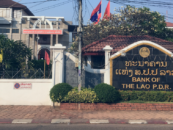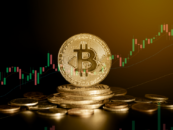The Philippine central bank has issued another virtual currency exchange (VCE) license to a blockchain company, now the 6th in the country, even as the Securities and Exchange Commission (SEC) has set the launching of its draft of crypto-trading rules.
 The Bangko Sentral ng Pilipinas (BSP) has accredited Philippine Digital Asset Exchange (PDAX), a blockchain startup that seeks to establish itself as a crypto-trading platform catering specifically to Filipinos.
The Bangko Sentral ng Pilipinas (BSP) has accredited Philippine Digital Asset Exchange (PDAX), a blockchain startup that seeks to establish itself as a crypto-trading platform catering specifically to Filipinos.
PDAX, whose legal entity name is Fyntegrate Inc, founded in 2017, now stands alongside five other blockchain-enabled entities with a VCE license ― namely Betur Inc (of Coins.ph), Rebittance (of SCI Vetures), BloomSolutions Inc, ETranss, and Virtual Currency Philippines Inc.

Krystian Kucharzyk
“We are a blockchain company launching a cryptocurrency exchange as well as working on some initiatives to bring traditional securities onto the blockchain to make them accessible to Filipinos for the first time,”
said PDAX Co-founder Krystian Kucharzyk, in an exclusive interview with Fintechnews.
BSP’s license approval, he said, now legally allows PDAX to facilitate the exchange of Philippine Peso with cryptocurrencies, tokens, and other forms of virtual currency.
Among the first cryptocurrencies that PDAX has listed are Bitcoin (BTC), Ethereum (ETH), Ripple (XRP), Bitcoin Cash (BCH), and Litecoin (LTC).
“More locally in-demand coins will be made available on the platform in the coming weeks,”
Kucharzyk added.
The approved VCE license proves PDAX is compliant with the guidelines set in the BSP Circular no. 944, series of 2017, which requires VCEs to prevent money laundering and protect customers from illegal financial activities.
The prescribed measures that VCEs must take include registering with the Anti-Money Laundering Council (AMLC), having adequate risk management and security control systems, adhering to the BSP’s transaction requirements, and paying registration and service fees.
Based on BSPs definition of virtual currency it is “a type of digital currency created by a community of online users, is stored in electronic wallets (e-wallets), and generally transacted online. It is not issued or guaranteed by central banks or government authorities. VCs may be transferred within the community of users. It may be used to buy virtual items (e.g. games, apps) or real goods from online shops/merchants willing to receive the VC as payment. In this sense, VCs are used as a medium of exchange.”
SEC Sets Launching of Drafted VC Exchange Rules
Meanwhile, SEC Commissioner Ephyro Luis B. Amatong disclosed to local media that SEC will probably release this month a draft of its rules for VCEs, and hopefully finalized regulations before the year ends.
Amatong said that SEC is cooperating with BSP to come up with a joint cooperative oversight about the exchanges.
He noted SEC’s concern is that the VCE license that BSP issues is apparently more about remittance purposes, and money changing from crypto to fiat, but not exactly about rules in operating as a VCE trading platform, which company applicants mostly aspire.
In SEC’s bid to promote investor protection and allow small to medium enterprises (SMEs) to raise capital in alternative ways, Amatong said the commission plans to pattern its VCE regulations in other countries like those in Australia, US, and Switzerland.
Featured image via PDAX blog








